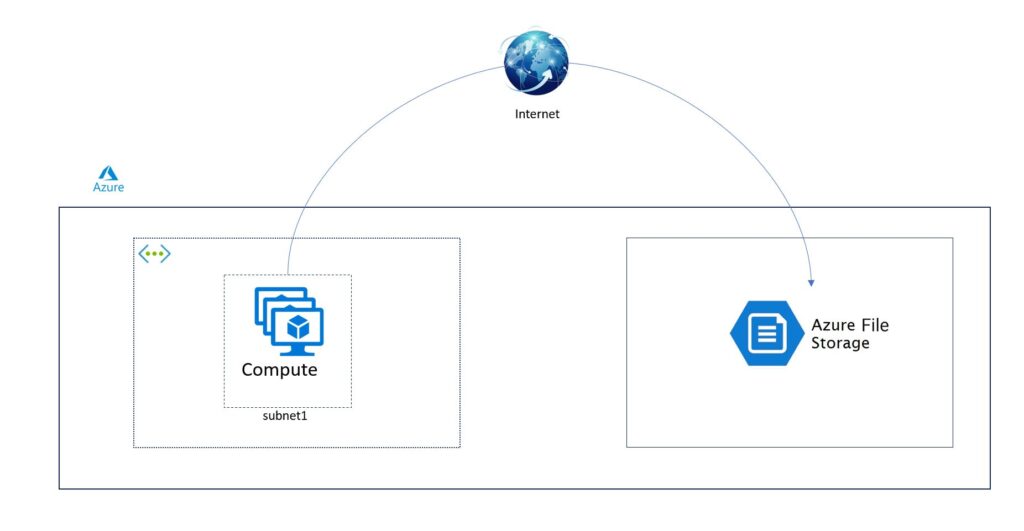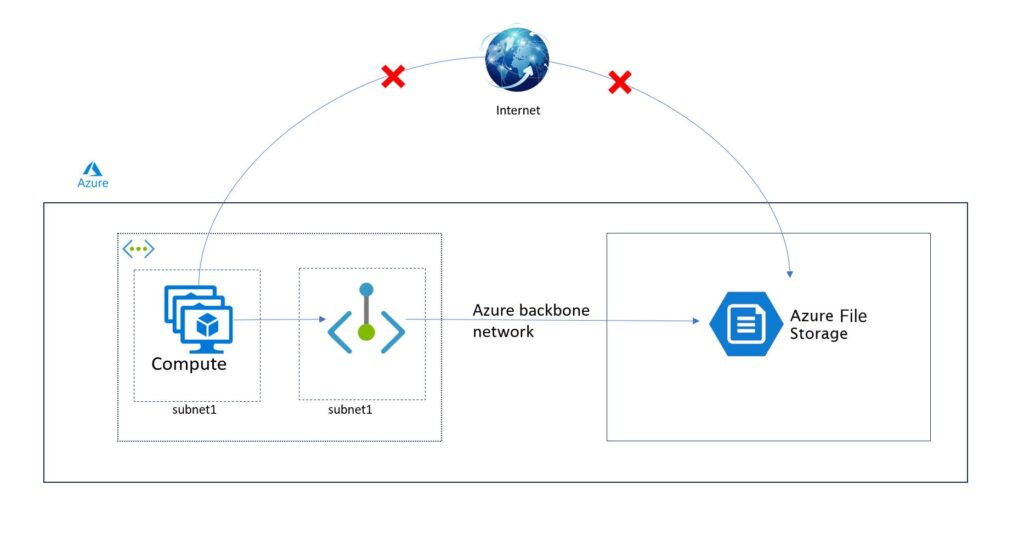What is a private endpoint?
To connect the Azure PaaS service through a private network (Azure backbone network) instead of a public network, we can use this private endpoint. This will create a network interface card in the required virtual network and connect through the internal network using a private IP address.
How different services are communicating to transfer data
Let’s try to connect the storage account from the virtual machine without a private endpoint.
Azure VM connects files to a storage account through the internet. It is the same if both are in the same region/zone.

Here the computing system is trying to access the storage-related files through the internet. Both compute and storage accounts are in the same Azure account with different networks.

Using private links, compute systems are not fetching Azure storage files through the internet. Compute systems use a private endpoint to connect to Azure storage through Azure backbone to fetch the required files. So that it is secure and low-latency
Advantages of Private endpoint
-
- Enhanced Security: This helps to never leave the Azure network. So data transfer between your virtual network and the service remains within the Azure backbone
-
- Isolation: services aren’t exposed to the public internet, reducing the attack surface.
-
- Compliance: Private endpoints are valuable for industries with strict compliance requirements, such as healthcare (HIPAA), finance (PCI DSS), or government (FedRAMP). They can help ensure that data handling and transfer comply with regulatory standards.
-
- Performance: traffic between the services are in the Azure network. So we can achieve lower latencies and improved performance compared to sending data over the public internet.
-
- Network Security: can maintain a more granular level of control over your network security. By using Network Security Groups (NSGs) and Azure Firewall, you can implement fine-grained access controls for private endpoint traffic.
-
- Attacks: As the services are not exposed to the public internet, it will reduce common internet-based attacks such as distributed denial-of-service (DDoS) attacks.
-
- Hybrid Connectivity: This can be used to facilitate hybrid cloud connectivity, allowing on-premises resources to securely interact with cloud services over a private connection.
-
- Availability: has high availability and failover support, ensuring that your applications and services have reliable access to the Azure service.
- Cost: You can potentially save on data transfer costs since data exchanged with the service over a private endpoint typically doesn’t incur the data egress charges associated with public internet traffic.
